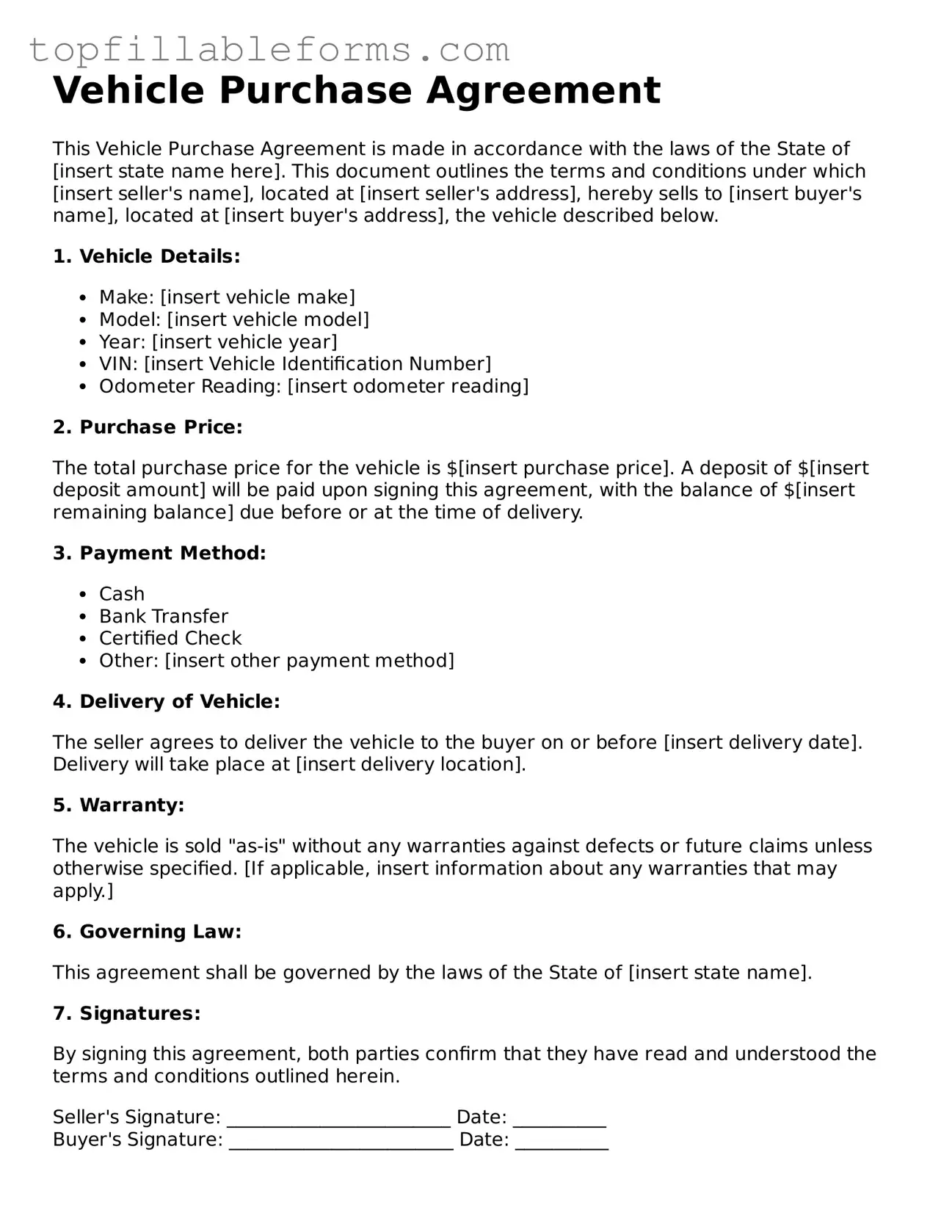Free Vehicle Purchase Agreement Form
A Vehicle Purchase Agreement is a legal document that outlines the terms and conditions of a sale between a buyer and a seller of a vehicle. This agreement serves to protect both parties by detailing important information such as the purchase price, vehicle identification number, and any warranties provided. Understanding this form is essential for ensuring a smooth transaction and avoiding potential disputes.
Open Vehicle Purchase Agreement Editor Here

Free Vehicle Purchase Agreement Form
Open Vehicle Purchase Agreement Editor Here
Finish the form now and be done
Finish your Vehicle Purchase Agreement online by editing, saving, and downloading fast.
Open Vehicle Purchase Agreement Editor Here
or
▼ PDF File
